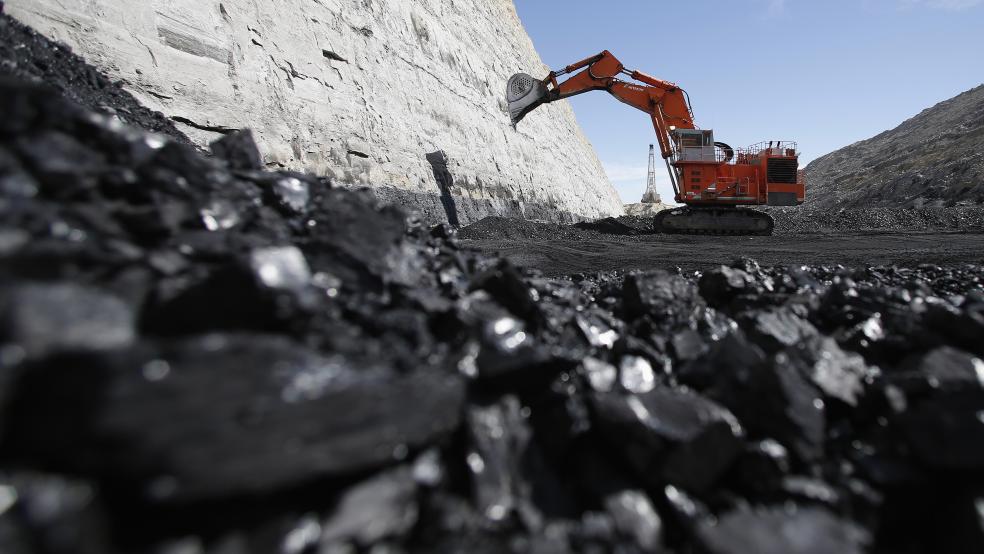Donald Trump made a major play for coal miners and producers throughout the 2016 campaign, loudly denouncing the “anti-coal” policies of the Obama administration and Hillary Clinton. He promised to reopen abandoned mines and rejuvenate the declining industry.
"We're going to get those miners back to work ... the miners of West Virginia and Pennsylvania … and Ohio,” Trump said last spring. “They are going to be proud again to be miners."
Related: Obama Leaves Trump With a Tough Choice: Big Oil or Big Corn?
The number of coal mining jobs has declined, falling from 84,600 shortly after President Obama took office in March 2009 to just 56,700 early this year, according to the Department of Labor. Trump’s plea to voters in major mining states paid off handsomely and helped him to score critical wins in the battleground states of Pennsylvania and Ohio, while coasting to victory in Kentucky, West Virginia and the rest of coal country.
Whether Trump and the GOP are capable of reversing trends that are hurting the coal industry – including natural gas production from fracking that is driving down energy costs, increased mechanization of coal production that eliminates jobs, and strict government regulations on carbon emissions — remains to be seen.
In the short term, however, Republican policy making could have an adverse effect on rank and file coal miners, retired miners, and their families. While the issues at hand are relatively narrow, they are critically important to tens of thousands of mining families throughout Appalachia who are struggling to make ends meet.
Black lung disease. For years, coal miners and their families were rebuffed by mining companies in attempting to collect compensation for disabilities associated with respiratory problems developed by inhaling coal mine dust. The biggest problem was that by law the burden of proof fell to the disabled miners, their families or survivors to demonstrate that the miners’ respiratory problems were real and directly related to years of work in company mines.
Related: ‘King Coal’ McConnell Wants to Scrap Obama’s Carbon Plan
But as the health and science website STAT reported Monday, that all began to change with enactment of the Affordable Care Act in 2010. Under an obscure miscellaneous provision added by the late Democratic Sen. Robert C. Byrd of West Virginia, the burden of proof was abruptly shifted from the disabled miners to the mining companies themselves.
In effect, if a miner had spent 15 years or more working underground for a company and could prove that he or she had developed a respiratory disability, then it was presumed to be black lung associated with employment at the mine. And unless the company could somehow prove otherwise, it would be responsible for providing disability benefits to the miner or his survivors.
“Often the person whose job it is to do the convincing loses,” Evan Smith, a lawyer for the nonprofit Appalachian Citizens’ Law Center who has handled many black lung cases, told STAT. In 2009, just prior to enactment of Obamacare, 19 percent of claims for black lung benefits were successful. By last year, the share had jumped to 28 percent.
Now, however, many in coal country may have reason to worry. Trump and House and Senate GOP leaders have vowed to make the repeal of Obamacare one of their first acts in January. If the Republicans carry through, Byrd’s black lung provision would likely be washed away along with the provisions for subsidized health insurance plans and expanded Medicaid for low-income Americans.
The Miners Protection Act. Congress is trying to address the crisis of failing pension and health benefits in the coal mining industry before the end of the year, but a clash of views between Senate Majority Leader Mitch McConnell (R-KY) and Senate Democrats may jeopardize enactment of the legislation.
Related: The Pros and Cons of Obama’s New Carbon Rule
Those benefit plans were severely underfunded as a result of the Great Recession and a major downturn in the industry, as coal companies declared bankruptcy and reneged on their obligations to current and former employees. In the latest bit of bad news, the benefit fund of Patriot Coal informed 12,500 retirees last month that their health coverage would end on Dec. 31, according to Sen. Joe Manchin (D-WV), a chief sponsor of the emergency rescue legislation.
More than 10,000 other retirees are likely to experience a similar fate next year, according to Manchin and 27 other Democratic co-sponsors of the legislation. “Additionally, the pension fund that these miners and their widows rely on for life’s basic necessities will reach the point of no return shortly thereafter,” the lawmakers said in a letter earlier this year.
The proposed emergency legislation cleared the Senate Finance Committee by a vote of 18 to 8 in September. It would borrow from a mine cleanup program created by the Surface Mining Control and Reclamation Act to boost union health and retirement plans with an estimated $220 million a year.
But the legislation has run into a serious roadblock after McConnell, the Republican majority leader and champion of Appalachian coal companies, questioned why the emergency funding would be targeted exclusively to unionized coal workers, and not to non-union miners, as The New York Times editorial page reported Monday.
The current version of the bill would transfer funds from the abandoned mine land program to the United Mine Workers of America 1974 Pension Plan to prevent its insolvency. That would protect an estimated 89,000 pensioned miners and family members and 22,000 workers.





